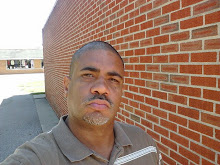



The Obama Swagger
By Melanie Eversley | TheRoot.com
Why black men everywhere are standing a little taller!!!!
Oct. 31, 2008--Barack Obama's steep rise to political stardom is an American story that has rewritten the rules of politics, reenergized the Democratic Party and electrified Americans in general. But maybe no group of Americans is more invested in the Obama phenomenon than black men who see in his success a transformation of their own public image.
African-American men say this is the first time since the Million Man March in 1995 that they have felt so good about one another.
At barber shops, night clubs, coffee bars and even on subways, African-American men have been watching Obama's ascension with cautious optimism and no small amount of amazement.
"Opportunity and hope, I think that's what Barack brings—the hope that anything is possible," said Ramone Crowe, 39, owner of The Java Exchange Café in Detroit.
Crowe's customers—especially African-American men—have packed into his coffee bar for his debate nights. Crowe sees in the intense level of engagement a shift in the thinking of black men, a new sense of self, he said. In too many cases, African-American men have become the stereotypical representation of the most discouraging statistics that afflict Americans, from poor health high dropout rates to financial trouble.
But with Obama, one of their own has come to embody all that is good and possible in America. "Even if he doesn't win, he's doing a great campaign and [is] validation that all African-American men are not viewed in a negative way," said Crowe, who lives in Belleville, Mich. "Everyone's mindset has changed."
The same intensity about Obama is evident at the Working Wonders Beauty and Barber Salon in Canal Winchester, Ohio, outside Columbus, where sports is no longer the preferred fare on the shop's TV. "It's 70 percent of news now," said barber Jemal Burton, 33. "It was a gradual thing. People will say, 'The debate? Did you catch the debate? What's on TV real quick?'"Burton, who lives in Pataskala, Ohio, did not vote in the last general election because he did not believe it would make a difference. He believes many other African-American men are equally discouraged about the impact they can have on the direction of the country; young people, because they believe their opinions do not matter, and older people, who remember presidential administrations that were openly hostile to the interests of black people.Not anymore, said Burton. "There's a new fire to get involved," he said.
Numbers seem to be reflecting this emotion.Unofficial tallies from states holding early voting show African-American men participating in numbers like never before, said Melanie Campbell, executive director of the National Coalition on Black Civic Participation. The nonprofit advocacy organization based in Washington seeks to draw more African Americans into the election process.
As of a few days ago, roughly 90,000 African-American men had voted early compared to about 50,000 African-American women, Campbell said. Normally, African-American women vote in much larger numbers than their male counterparts, she said."We don't know what's going to happen until the last vote is counted… but once you had an African-American man get that nomination, history was made. Nothing in the history books even came close," Campbell said. "Not to say there wasn't any groundwork done," she continued, acknowledging the Rev. Jesse Jackson's historic bids for the Democratic nomination in 1984 and 1988. But this is different, she said."You have the brother in the business suit talking to the brother in the baggy pants about, 'Did you see the debate last night?' " Campbell said. "It's a whole new engagement."Recently, Paul Bogle, 29, while having his beard trimmed by barber Earl Wilson at A Sharper Image Barber Shop in northwest Washington, D.C, said: "It's making a lot of us feel better about ourselves. If they don't cheat or assassinate him, I know he's going to go on to win. There is no doubt in my mind he can do this."
If that enthusiasm is reflected in the turnout Tuesday among African-American men, it could tip the scales in key states such as Virginia, North Carolina, Ohio and Pennsylvania, and that could make the Million Man March look like a blip in the history books.


